Can the European Union stop Libya's 'ammunition depot'?
(Baonghean) - After a heated debate, EU foreign ministers in Brussels, Belgium, finally agreed to launch a new mission to enforce the arms embargo on Libya. Supposedly replacing the previous Operation Sophia, this mission includes air surveillance and naval operations. However, from the beginning, critics have asserted that the mission will bring very little improvement.
Diplomatic progress
According to DW, as agreed at the Libya peace conference held in Berlin in January, the new military mission is expected to form a pillar of the EU's overall strategy towards stabilizing the North African country. And on February 18, the source also said that after meetings with European counterparts, German Foreign Minister Heiko Maas announced that the parties had reached a decision, adding that the new mission related to Libya will include a "maritime component". In other words, the EU will send naval ships to the Eastern Mediterranean region.
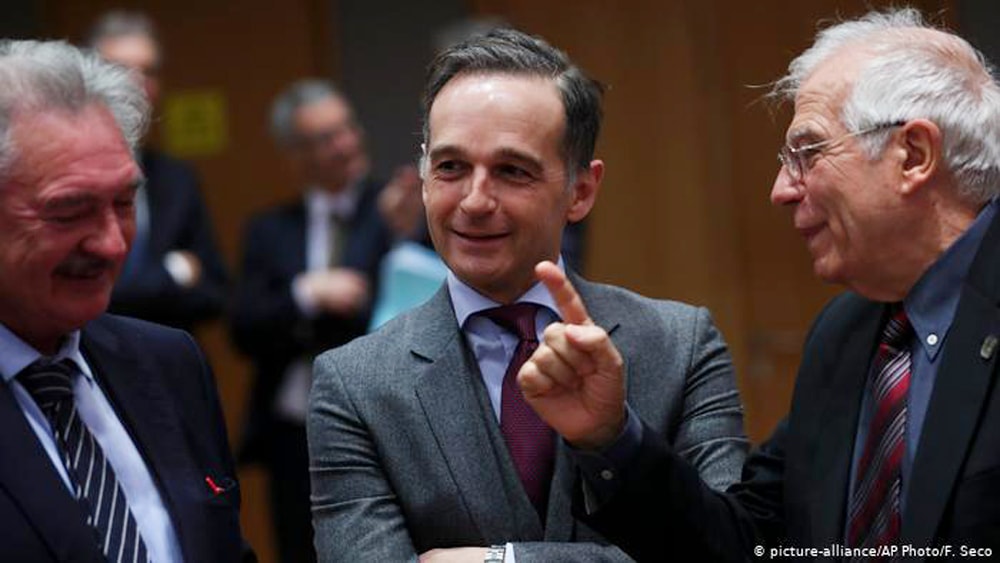 |
| German Foreign Minister Heiko Maas (center) said it was important for world powers to stop parties from supplying the conflict in Libya. Photo: AP |
The move is believed to be an attempt to replace Operation Sophia, which was suspended last year because of Italy's objections to EU ships rescuing migrants at sea and allowing them to disembark at Italian ports. Austria initially tried to block the mission, fearing that relaunching a maritime mission would encourage more migrants to cross the Mediterranean. But a compromise was eventually reached within the EU, with Maas insisting that the new mission would only send EU ships to the eastern Mediterranean and away from the sea routes most often used by migrants. But with arms smugglers trying to evade EU monitors, European ships will find it difficult to limit their patrols to just that area.
In Brussels, Foreign Minister Maas reiterated that the relaunch of the EU mission was a step towards finalising the Berlin agreement, which aims to separate the warring parties in Libya, and ensure that each side's international allies stop supplying weapons that would further fuel the crisis.
On Sunday, as the Munich Security Conference drew to a close, the countries involved in the Libya conflict once again affirmed their commitment to the arms embargo. However, frankly, it is unclear how credible this commitment is. For example, just days after the Berlin summit in January, UN Secretary-General Antonio Guterres announced to the world that the ceasefire in Libya had broken down and arms shipments were once again underway.
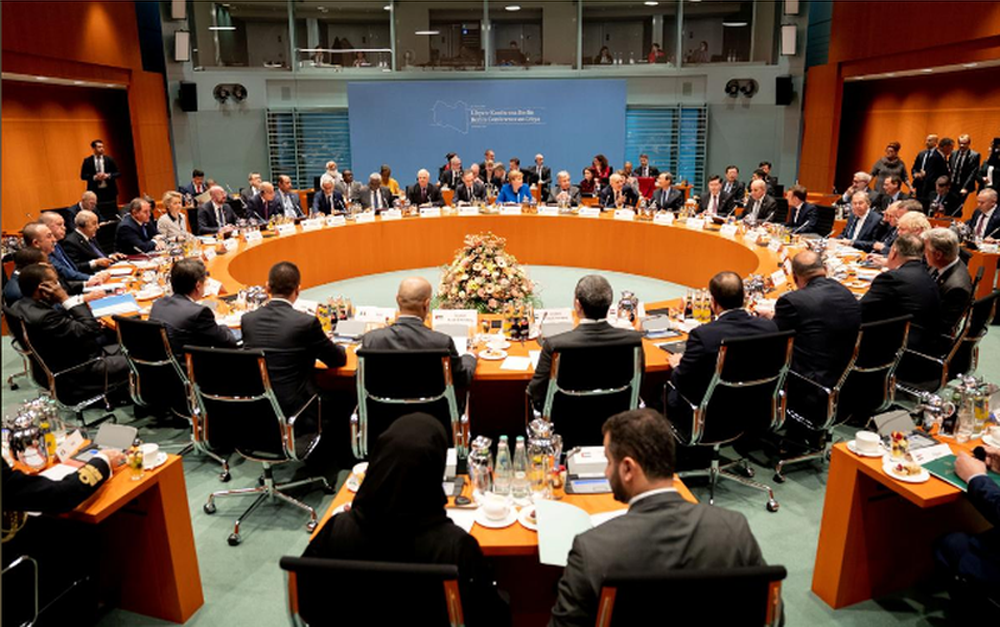 |
| Libya summit in Berlin, Germany, January 19, 2020. Photo: Reuters |
How does the EU influence?
After Libyan leader Moammar Gadhafi was toppled in 2011, regional militias armed themselves with weapons seized from Gadhafi’s army. When civil war broke out in the country in 2014, arms imports into Libya increased dramatically. And since 2019, a bloody proxy war has been brewing on the ground. General Khalifa Haftar, backed by arms transfers from the UAE, Egypt, Jordan and Russia, is facing off against the Tripoli-based Government of National Accord (GNA) led by Prime Minister Fayez al-Sarra, which is recognized by the UN and the EU and receives weapons from Turkey. In short, arms shipments are arriving in war-torn Libya by sea, land and air.
Josep Borrell, the EU's foreign policy chief, said that negotiations over the bloc's new mission had been intense, but that enough EU countries had volunteered to send ships. Borrell insisted that "there will be no shortage" of ships, adding that the EU fleet would be able to intercept any arms smugglers. However, the diplomat acknowledged that this was not a walk in the park. He could not say how many weapons had actually been shipped to Libya, saying "we are doing what we can, but we cannot station troops along the Egypt-Libya border."
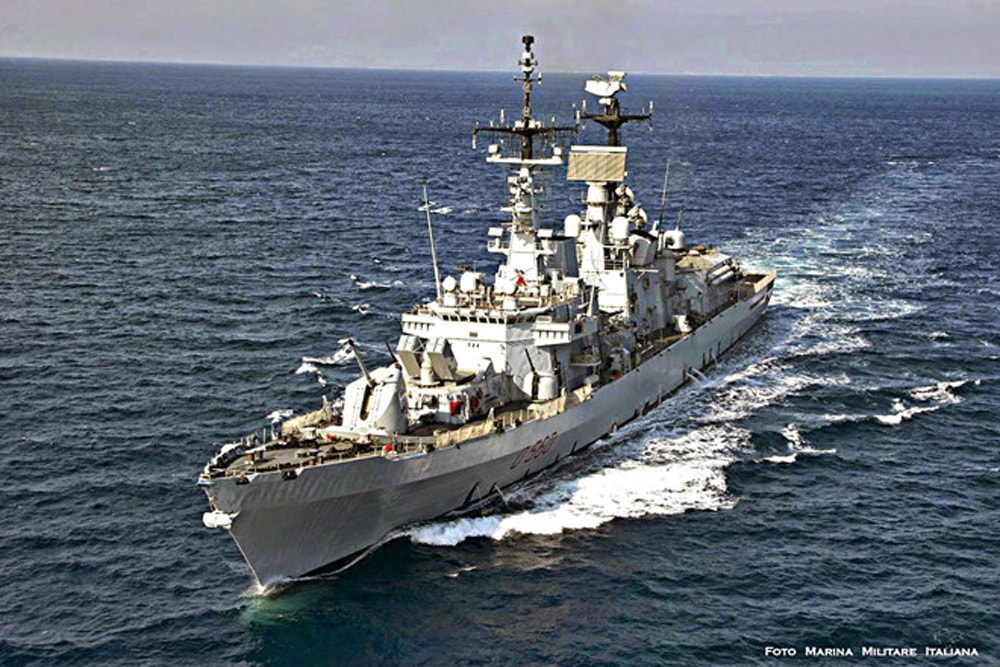 |
| An Italian naval ship off the Mediterranean coast. Photo: Italian Navy |
The EU air surveillance operation will reportedly only gather intelligence, while the naval mission is little more than a symbolic move. To actually stop any arms shipments to Libya, the EU would have to send troops on the ground and take full control of the country’s airspace with fighter jets, but these are all tasks beyond the EU’s capabilities.
Weapons ban as a “joke”
“The arms embargo has become a joke,” said Stephanie Williams, the UN deputy special envoy for Libya. “We all really need to step up here. The situation is complicated by violations on land, sea and air, but it needs to be monitored and accountability needs to be established.” Similarly, Germany’s top diplomat, Maas, acknowledged that the embargo had been breached numerous times in recent weeks.
Liberal members of the European Parliament (EP) have reported more than 100 violations in recent days, and have criticized the agreement reached by EU foreign ministers as insufficient. MEP Nicola Beer said the foreign ministers had wasted the opportunity to “agree on sanctions that would send a clear signal to Türkiye, Russia or the UAE.” In her view, agreeing on an EU military mission without imposing sanctions is not enough to bring peace to Libya and does nothing to reduce the flow of migrants heading to Europe.
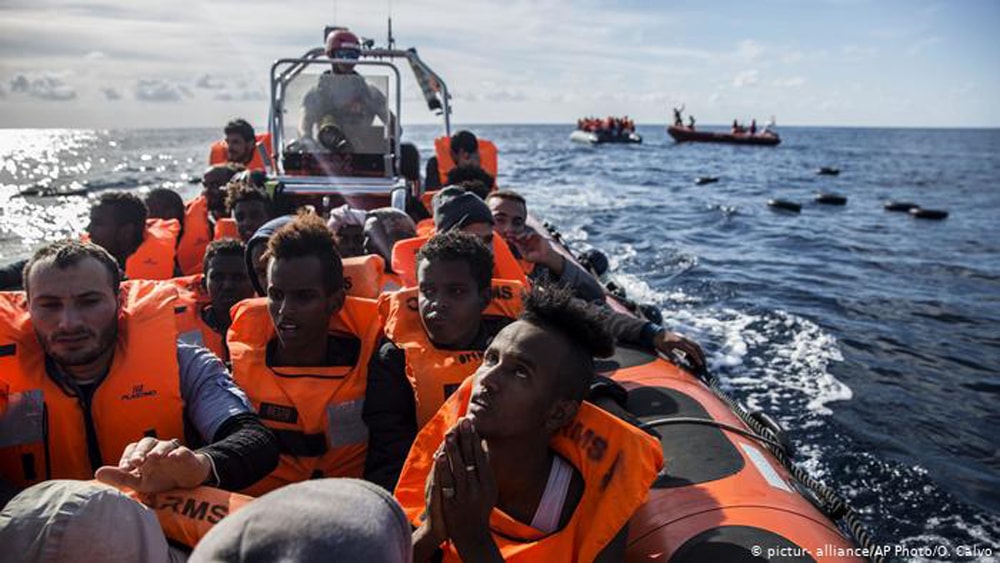 |
| Some EU countries fear the new mission will increase the flow of migrants to Europe. Photo: AP |
For their part, Green MPs in the EP complained that the new mission was not suitable for rescuing migrants at sea. MEP Erik Marquardt said that “ships should be where people are in distress”. To reinforce his argument, this politician cited that in a year, EU governments prevented migrants from being rescued and also helped Libyan militias cut off migration routes.
In a recent study, Markus Keim and Rene Schulz of the German Institute for International and Security Affairs (SWP) wrote that “there is no easy option for the EU that would require little effort and guarantee success in enforcing the existing arms embargo. All options would have significant political, financial and military costs.” They argued that the EU lacks the military means to do so, and that economic sanctions would also be key. However, given that Italy and France each support a different side in the conflict, the chances of success are considered slim.
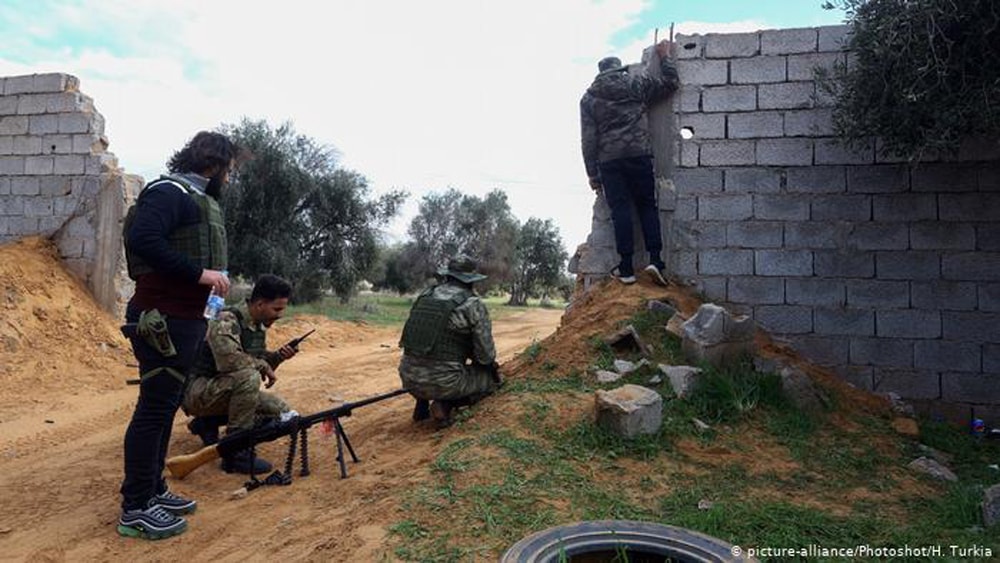 |
| Both rebels and government forces in Libya receive weapons from foreign backers. Photo: PA |
Yacoub El Hillo, Deputy Special Envoy of the UN Secretary-General to Libya, said that an estimated 150,000 to 200,000 tons of uncontrolled ammunition are currently scattered in Libya. He affirmed that the war in Libya and violations of the arms embargo have made the North African country "the world's largest uncontrolled ammunition depot". At the same time, Libya is also "the world's largest stage for the use of unmanned technology", referring to the large number of unmanned aerial vehicles in the country's airspace.
